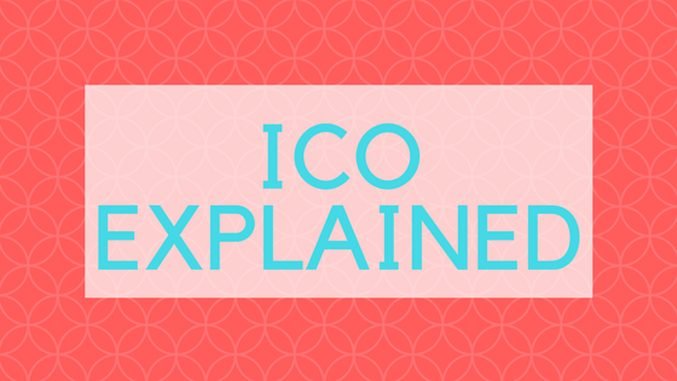|
Since the launch of cryptocurrency (bitcoin) in 2009, several innovations have come up, further establishing the influence of cryptocurrency on global economy. However, in 2013, Mastercoin held the first ICO. And since then, several ICO campaigns have graced the world of digital currency. However, laypersons still know little to nothing about ICO. Below is a brief explanation of ICO.
What is ICO? ICO, Initial Coin Offering, also known as token crowdsale, is an unregulated means by which startup cryptocurrency companies fund their projects. Startup crypto companies launch a project while asking for the public to buy into their projects with Bitcoin or Etherum or fiat money. The buyers get the companies subsidized tokens, while the companies get the buyers cryptocurrency or fiat money to fund and develop their projects. An ICO campaign like IPO runs for a set time and with maximum tokens available for sale. Once this is reached, the campaign closes, and if the goal is achieved, then the company will commence the promised project with the crowdfunded capital. But if the target is not reach i.e. if by the time the campaign ends, the capital raised for the project is insufficient, then the company will refund all contributions. What do I Gain from ICO? Before making an investment, one must always ask the question “What’s in it for me?” Besides helping the company to fund their projects by crowfunding, ICO is profit oriented. The companies sell their tokens cheap at the start with hope of increasing in value. This potential gain is what the public gambles on. Like IPO, the company sells tokens which is more or less like stocks in IPO, however, buying tokens will not earn you a share of ownership in the company. You can do whatever you want with the tokens. Buyers can sell back their tokens to earn instant profit. For instance, when Storj, sold their tokens in May this year, their buyers were able to use the tokens to exchange for space on Storj’s cloud. After a successful project, the value of the tokens would have increased and this is also profits for the buyers. For instance, when Etherum ran an ICO campaign in 2014, tokens were sold for $0.4. After the successful launch of the project in 2015, each token had appreciated and were worth $19.42. This profit is not the type you would get with IPO What are the Risks Involved? As mentioned above, ICO is unregulated, there’s no government backing, there are no requirements before a cryptocurrency company can go public, this about sums it up that it is a gamble. Therefore, you can lose all your money and the website with will be shutdown leaving you with no one to report, if it’s a scam ICO. And even when it’s legit, profits are not guaranteed. However, cryptocurrency company owners seeing that they will lose the public’s trust and the opportunities for public crowdfunding their startups imposed a self-regulatory rules. Crypto startups now have escrow wallets, where they store up contributions, which can only be accessible after unlocking with several keys, one of which is held by a neutral third party. Crypto startup owners have also started documenting their terms and conditions, and establishing legal entities for their companies. Come to our next cryptocurrency event in SF to learn more!
0 Comments
Leave a Reply. |
Categories
All
|




